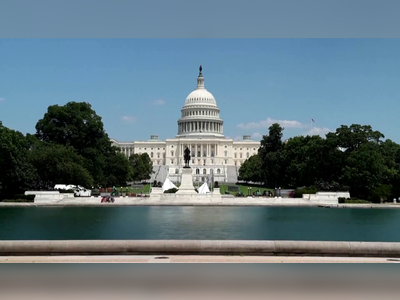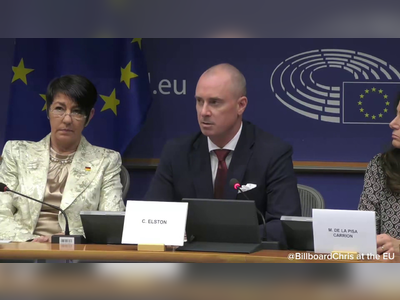
New Legislation Targets Benefit Fraud with Potential Driving License Suspensions
UK Government introduces measures to curb welfare fraud, potentially affecting driving privileges of offenders.
In a decisive move to clamp down on welfare fraud, the UK Government has unveiled a set of measures aiming to revoke driving licenses for benefit fraud offenders who fail to repay their debts.
If enacted, individuals found guilty of benefit fraud may lose their driving privileges for up to two years if they owe over £1,000 and repeatedly ignore payment requests.
This initiative has been described by the Government as 'the biggest fraud crackdown in a generation'.
Under the proposed legislation, the Department for Work and Pensions (DWP) will gain new legal powers to recover debts efficiently.
These powers include the ability to request court orders to suspend driving licenses and recover funds directly from offenders' bank accounts.
Additionally, authorities will be empowered to obtain bank statements from individuals believed to possess adequate financial resources to settle their debt but refuse to do so.
Search and seizure of household items, such as electronic devices, are also within scope as evidence against fraud.
Despite the enhancement in capabilities, the DWP maintains that it will not have direct access to individuals' bank accounts.
Liz Kendall, the Work and Pensions Secretary, emphasized the significance of these measures stating, 'We are turning off the tap to criminals who cheat the system and steal law-abiding taxpayers' money.' She further highlighted that the new powers come with oversight mechanisms to ensure proportional and safe application.
The Public Authorities (Fraud, Error and Recovery) Bill, which would solidify these measures into law, is scheduled for introduction in Parliament on Wednesday.
The Government estimates this initiative could save taxpayers £1.5 billion over the next five years.
To address potential concerns regarding the Bill's impact on civil liberties, ministers have pledged to implement comprehensive codes of practice and oversight mechanisms for DWP operations.
Not all reactions to the proposed legislative changes have been positive.
Silkie Carlo, Director of the UK civil liberties organization Big Brother Watch, expressed concern over the potential overreach, describing access to benefit claimants' bank accounts as unprecedented.
She also noted the vulnerability of many benefit recipients, stating that this group includes individuals with serious illnesses, pensioners, and carers.
Furthermore, the Bill also seeks to expand the powers of the Public Sector Fraud Authority to handle cases of Covid-era fraud, extending the time limit for civil claims from six to twelve years.
In the political arena, Helen Whately, the shadow work and pensions secretary, welcomed the tightening of measures but criticized opposition leader Keir Starmer, suggesting a need for greater action from the Labour Party on welfare expenditure.
The introduction of these measures marks a significant step in the UK Government's ongoing efforts to address benefit fraud and optimize public spending, amid broader discussions on civil liberties and economic policy.
If enacted, individuals found guilty of benefit fraud may lose their driving privileges for up to two years if they owe over £1,000 and repeatedly ignore payment requests.
This initiative has been described by the Government as 'the biggest fraud crackdown in a generation'.
Under the proposed legislation, the Department for Work and Pensions (DWP) will gain new legal powers to recover debts efficiently.
These powers include the ability to request court orders to suspend driving licenses and recover funds directly from offenders' bank accounts.
Additionally, authorities will be empowered to obtain bank statements from individuals believed to possess adequate financial resources to settle their debt but refuse to do so.
Search and seizure of household items, such as electronic devices, are also within scope as evidence against fraud.
Despite the enhancement in capabilities, the DWP maintains that it will not have direct access to individuals' bank accounts.
Liz Kendall, the Work and Pensions Secretary, emphasized the significance of these measures stating, 'We are turning off the tap to criminals who cheat the system and steal law-abiding taxpayers' money.' She further highlighted that the new powers come with oversight mechanisms to ensure proportional and safe application.
The Public Authorities (Fraud, Error and Recovery) Bill, which would solidify these measures into law, is scheduled for introduction in Parliament on Wednesday.
The Government estimates this initiative could save taxpayers £1.5 billion over the next five years.
To address potential concerns regarding the Bill's impact on civil liberties, ministers have pledged to implement comprehensive codes of practice and oversight mechanisms for DWP operations.
Not all reactions to the proposed legislative changes have been positive.
Silkie Carlo, Director of the UK civil liberties organization Big Brother Watch, expressed concern over the potential overreach, describing access to benefit claimants' bank accounts as unprecedented.
She also noted the vulnerability of many benefit recipients, stating that this group includes individuals with serious illnesses, pensioners, and carers.
Furthermore, the Bill also seeks to expand the powers of the Public Sector Fraud Authority to handle cases of Covid-era fraud, extending the time limit for civil claims from six to twelve years.
In the political arena, Helen Whately, the shadow work and pensions secretary, welcomed the tightening of measures but criticized opposition leader Keir Starmer, suggesting a need for greater action from the Labour Party on welfare expenditure.
The introduction of these measures marks a significant step in the UK Government's ongoing efforts to address benefit fraud and optimize public spending, amid broader discussions on civil liberties and economic policy.










